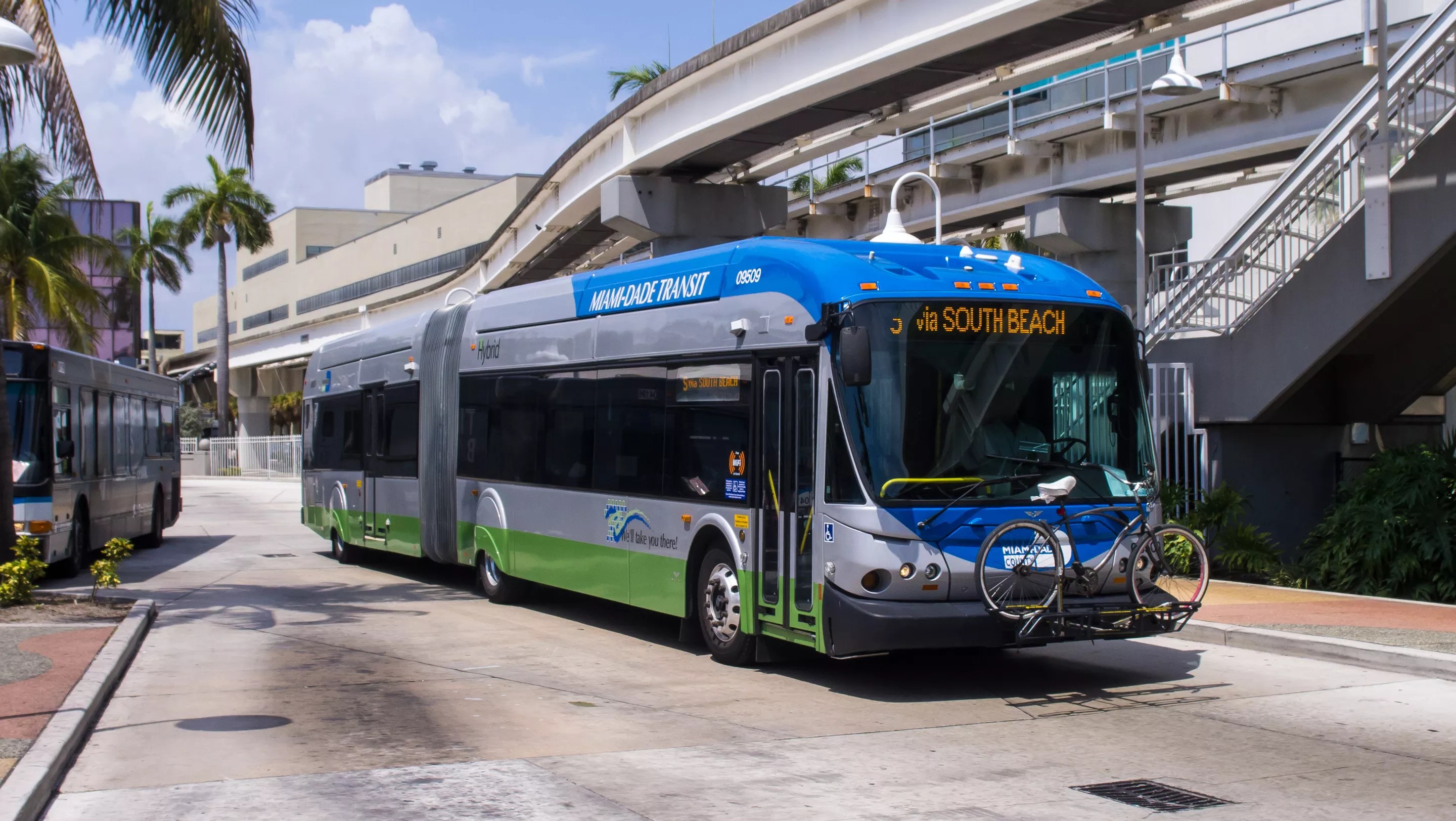
Photo by Ed Webster/Flickr

Audio By Carbonatix
Just before Christmas, Miami transit workers have been stiffed out of thousands of dollars they’ve been owed for years, leaving some in a tough spot for the holidays.
For the last three years, the Transport Workers Union (TWU) Local 291 has been negotiating a new employment contract with Miami-Dade County. The contract was supposed to last from 2017 to 2020 and give longtime employees who haven’t had a raise in years an increase in pay for longevity. But the county didn’t accept the contract until this, as it was nearing its expiration.
Once the contract was ratified, 1,000 union employees were owed tens of thousands of dollars in back pay. Yet the county has delayed paying raises to those workers for over a month, which union leadership calls “a slap in the face.”
“What’s happened is that every pay period the can keeps getting kicked down the road. They keep saying, ‘Next pay period, next pay period,'” says Jeffery Mitchell, TWU Local 291 president.
Mitchell says veteran bus drivers and rail operators have been promised every two weeks since October 18 that they’d receive the back pay, but some still haven’t seen any of it. Each pay period, county administrators have claimed that they were still calculating the pay and that workers would get the money in the next paycheck. When the target was moved for the umpteenth time last week, Mitchell says, he’d had enough.
In a letter shared on social media, Mitchell condemned county leaders, including Alice Bravo, the director of transportation and public works, for not paying employees what they’re owed and for being dishonest about when they could expect to be paid.
“This is completely unacceptable and should have been completed much sooner than this. We are approaching yet another pay period that is critical to our members and their families, many of whom have been setback [sic] by COVID-19, health issues, and other stressful factors,” Mitchell wrote on December 14.
After all the hardships that COVID has brought to our workers, we now find ourselves having to beg for backpay wages that were agreed upon months ago and set to be paid 11/6. The ineptitudes and abuses of @IRideMDT Dir Alice Bravo must be addressed by @MayorDaniella ASAP. pic.twitter.com/sBC3XYI5KR
— TWU Local 291 (@TWUlocal291) December 16, 2020
After the union’s letter was shared on social media, Mitchell was contacted by the county’s newly appointed chief operating officer, Jimmy Morales, who told him that the human resources department was still calculating what 727 of the 1,000 longtime employees were owed, despite earlier assurances that the work had already been done. According to Morales, only 273 employees are expected to have their raises before December 25. The rest will most likely have to wait until December 31.
“I sincerely apologize for the delay in the processing of the ‘longevity step payment’ for those members eligible to be at the new maximum of the range,” Morales wrote in a December 17 email to Mitchell. “Processing the longevity pay step provision(s) requires an increased level of effort.”
Mitchell tells New Times that while he appreciated the clarification from Morales, he wishes county leaders had been clear about the payment schedule from the get-go. The transit workers eligible for raises, several of whom have families to support, were hoping for some relief ahead of the holidays and expected to see the extra money in their paychecks weeks ago. Now, they’re left empty-handed until the end of the year.
“It’s been real stressful this year, if not for them, then for family members who are out of work. Some employees have spouses who work in the private sector who have lost their jobs,” Mitchell says. “A lot of my members have told me, ‘I needed this for Christmas.'”
As a result of the delays, some upset employees have compared Miami-Dade County to the Grinch.